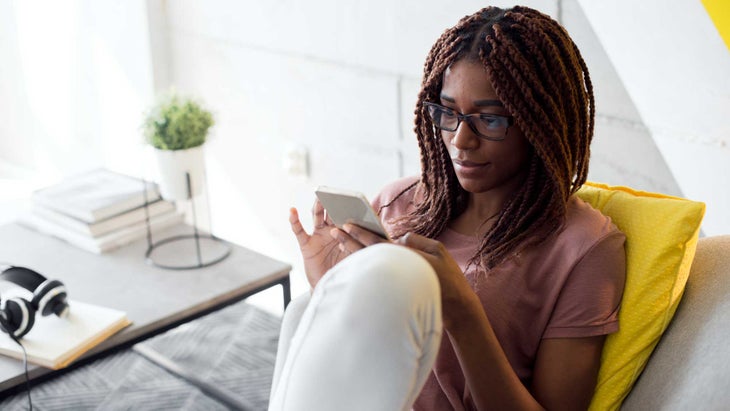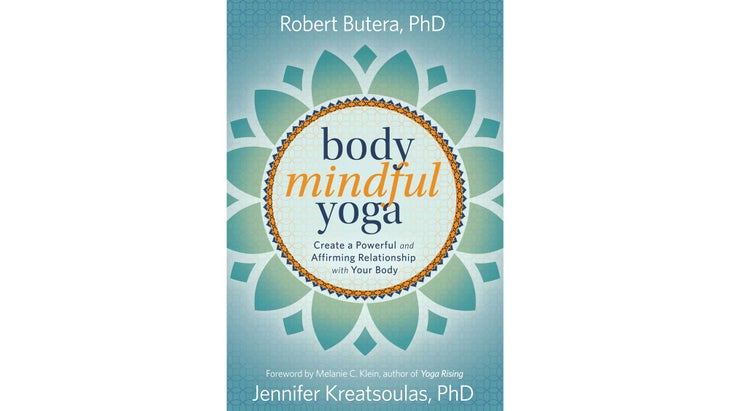Heading out the door? Read this article on the new Outside+ app available now on iOS devices for members! Download the app.
We live in a world highly conscious of the presence of social media as a force for human interaction and connection. Social media taps into our basic human instinct to belong to the “tribe,” which is a major reason why our favorite platforms maintain such a prominent role in our lives. With every scroll through our newsfeed, we subconsciously seek to satisfy a deep and primal desire to belong.
Yet here’s the catch: Our personal tribes on social media are significantly more expansive and far-reaching than our tribes of old. Platforms like Facebook and Instagram allow us to bond with friends and family all over the world. In the mere space of a post we watch babies grow up, teens go off to college, couples get married and divorced, and every life event in between. We follow what people eat, what they wear, when they go to yoga class, and how many miles they ran. From the most mundane to the most significant events, we are privy to others’ lives in intimate ways.
See also A Practice to Help You Break Up with Your Bad Body Image Once and for All
Not only does social media offer that comforting sense of “these are my people,” but it also encourages us to make new friends and access other tribes or social groups. As we accumulate more friends that intersect with tribes removed from our personal one, our sense of belonging expands. Plus, beyond interacting with friends, we can join closed groups, create communities that support a cause, and network as professionals. We have instant access to current events and an outlet to voice our opinions. We can like and be liked—loved even. Every post is an opportunity to bond with our tribe, and every like, comment, share, and retweet reinforces our survival instinct to belong.
The line between satisfying our survival instinct and seeking external validation can sometimes blur in our relationship with social media. Let’s face it, the constant stream of images can trigger comparison, jealousy, sadness, shame, and discontent with who we are and what we look like. Filters and other image-enhancing tools have upped the game when it comes to presenting ourselves to the world as picture-perfect, which can leave us feeling pressured to constantly look ready for an image worthy of posting.
Want to form a healthier relationship with social media?
For yoga practitioners, social media represents a rich opportunity to practice the Svadhyaya, the fourth niyama in Patanjali’s Yoga Sutras. Svadhyaya literally means “one’s own reading” or “self–study” and is the practice of observing our behaviors, actions, reactions, thoughts, patterns, habits, and emotions with the intention of gaining wisdom about how to reduce suffering and become more empowered in our lives.
See also Feeling Stuck? Try Self-Inquiry for Resistance
When it comes to using social media, you can empower yourself by paying attention (practicing self-study) to which aspects of social media influence your relationship with your body in both positive, negative, and neutral ways.
To get a baseline for how your relationship with social media affects your body image and self-worth, take a few minutes to reflect on these questions:
- How does your basic human desire to be loved influence how you use and engage with social media?
- How do you feel about yourself when you use and engage with social media?
- What words do you say to yourself about yourself and the people you observe on social media?
The answer to this last question is especially important to study, as your inner dialogue holds tremendous power over your self-esteem, body image, and mood.
See also 5 Ways You Can Use Your Yoga Practice to Improve Your Body Image
In the spirit of yoga, remember to observe your answers to these questions without judgement. Consider what this short self-study exercise revealed. If you bumped up against disempowering thoughts, notice them, breathe, and offer yourself compassion. Commit to one small shift you can make in how you use social media. For example, you might limit your exposure, unfollow triggering people and hashtags, or repeat mantra or affirmation to call on in response to negative self-talk that shows up when you use social media.

A practice for a healthy relationship with social media
Balance the images you feed your eyes and mind with this body mindful yoga practice. As you do it, practice self-study and notice how your self-talk and general vibe compares with these visuals versus social media:
View paintings, drawings, statues, and other pieces of artwork that inspire positive feelings. Notice the colors, textures, and other fine details that capture your attention. What unique qualities do you appreciate about these artistic pieces? If a work of art is especially pleasing to your eye, consider using it as a point of meditation. Gaze at it first thing in the morning for an allotted period of time as you recite a mantra, affirmation, or prayer.
Use this practice often to balance out social media use and bring yourself back to center if you feel “off” after a breeze through your newsfeed. You can also choose to focus on nature or other non-screen entities that bring you a sense of focus, calm, and appreciation.
Call on the practice of self-study often to enlighten you to the empowering aspects of social media in your life as well as recognize patterns in your social media use that are disempowering. When used in the true spirit of connection, social media is a wonderful tool to nurture our natural need for a sense of belonging. It connects us to our primal and collective human need to belong. What was once the tribe or village is now an online format of like-minded friends.
See also Practice Svadhyaya (Self-Study) On the Mat
Adapted from the book, Body Mindful Yoga, by Jennifer Kreatsoulas and Robert Butera. Reprinted with permission from Llewellyn Worldwide.

About the Authors
Robert Butera, MDiv, PhD, founded YogaLife Institute in Pennsylvania, where he trains yoga teachers and Comprehensive Yoga Therapists. Robert’s PhD at CA Institute of Integral Studies focused on Yoga Therapy. He authored The Pure Heart of Yoga, Meditation for Your Life, Yoga Therapy for Stress & Anxiety, and Body Mindful Yoga. Visit him at www.YogaLifeInstitute.com.
Jennifer Kreatsoulas, PhD, E-RYT 500, C-IAYT, is a certified yoga therapist specializing in eating disorders and body image. She is an inspirational speaker and author of Body Mindful Yoga: Create a Powerful and Affirming Relationship With Your Body (Llewellyn Worldwide, 2018). Jennifer provides yoga therapy via online and in person at YogaLife Institute in Wayne, PA, and leads yoga therapy groups at Monte Nido Eating Disorder Center of Philadelphia. She teaches workshops, retreats, and specialized trainings for clinicians, professionals, and yoga teachers. Jennifer is a partner with the Yoga & Body Image Coalition and writes for Yoga Journal and other influential blogs. She has appeared on Fox29 news and has been featured in the Huffington Post, Real Woman Magazine, Medill Reports Chicago, Philly.com, and the ED Matters Podcast. Connect with Jennifer: www.Yoga4EatingDisorders.com